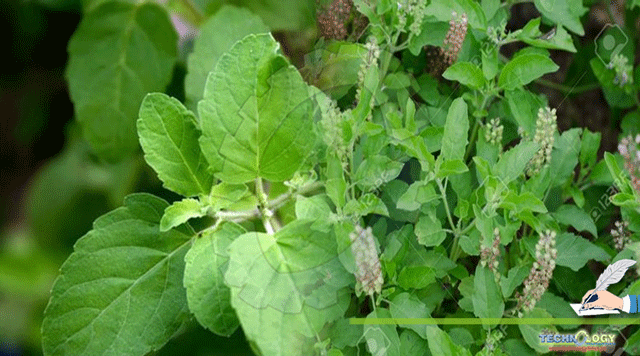Human beings are widely dependent on different kinds of herbs and medicinal plants to treat different kinds of pathological infections and even fatal diseases.

Human beings are widely dependent on different kinds of herbs and medicinal plants to treat different kinds of pathological infections and even fatal diseases. Among these plants, Ocimum sanctum, or queen of herbs commonly known as the Tulsi plant holds a prominent place. In English, the plant is called Holy Basil.
Similarly, Tulsi is documented in the Ayurvedic system of medicines as Dashemani Shawasaharni and as an antikaphic drug.
The word Dashemani Shawasaharni is the word used in Ayurveda for the antihistaminic properties of the Tulsi plant. The global population has overtly used different kinds of medicines, especially antibiotics, to procure a plethora of diseases.
Due to the excessive use of antibiotics, the human body develops resistance to these medicines. Consequently, World Health Organization alarms the bells about the menace of global antibiotic resistance.
To overcome this threat, an alternative should be adopted and medicinal plants are an excellent substitute for antibiotics. Ocimum sanctum is well-known for its antibacterial, antioxidant, antiviral, and antipyretic properties. Moreover, it also possesses immunomodulatory, antiulcer, anti-inflammatory, and antistress activities.
Due to the extraordinary medicinal potential of the Tulsi plant, the people of India give it a holy place in Indian culture. The mechanism of action of the Tulsi plant is due to its different constituents found in different parts of the plant.
The plant of Ocimum Sanctum contains flavonoids, saponins, triterpenoids, tannins, and a volatile oil containing eugenol. All the therapeutic potentials of the Holy Basil are due to the aforementioned chemical components.
Antimicrobial Properties of Ocimum Sanctum
Due to the threat of global antibiotic resistance, medicinal plants have become an excellent alternative to treat bacterial diseases. Ocimum Sanctum also shows efficient antibacterial activity.
The alcoholic extracts, seed oil, and aqueous extracts of the Tulsi plant have antibacterial properties against enteric pathogens.
These extracts of the plant act by inhibiting the growth of Mycobacterium Tuberculosis. Likewise, the oil of the Ocimum Sanctum leaves has the potential to act against some other bacterial species, such as S. aureus, S, mutans, and Enterococcus faecalis.
The Tulsi plant along with chloramphenicol and trimethoprim synergize the antibacterial activity of the plant’s extracts against particular bacteria called Salmonella typhi.
Antioxidant Properties of Ocimum Sanctum
Tulsi has the ability to prevent the oxidation of different biomolecules. These biomolecules are proteins, sugar, lipids, and DNA.
The oxidation of these molecules produces ketones, aldehydes, esters, and other products that might prove dangerous for the cell of the living system. To protect the body cells from oxidative reactions, Tulsi can be used alone or in combination with other compounds.
The methylated eugenol and propanoid are vital constituents to show antidiabetic activity and decrease the serum lipid profile. Hence Ocimum Sanctum has antilipidemic potential as well. Similarly, it treats oxidative stress due to the presence of a specific compound known as ursolic acid.
Antipyretic Activity of Ocimum Sanctum
Ocimum Sanctum has the ability to treat the pyretic condition of the body. It proves beneficial for the procurement of virally caused encephalitis, malaria, and typhoid.
Tulsi’s fresh juice along with black pepper can treat periodic fevers. Likewise, the decoction of Tulsi leaves along with cardamom powder in boiled state could be given to treat the pyrexia and reduce the body temperature.
Immunomodulatory Activity of Ocimum Sanctum
Immunity plays a vital role in the body’s defense mechanism against different infectious pathological conditions. Different foreign agents like bacteria and viruses invade the human body and disturb the normal physiological conditions.
Consequently, immune system comes to rescue the body cells from the harmful invaders. Ocimum Sanctum plant shows Immunomodulatory activity and enhances the immune response. The leaves of Tulsi plant are used in the preparation of different immunity boosting drinks and medicines due to their immunostimulant activity.
Conclusion
Hence Ocimum Sanctum possesses an efficient potential to deal with a plethora of pathological conditions due to the presence of active chemical constituents in the different part of the plant. It also holds a prominent in the Ayurvedic system of medicines.
This article is jointly authored by Muhammad Ali, Dr. Wafa Majeed and Ayesha from Institute of Physiology and Pharmacology, University of Agriculture, Faisalabad, Pakistan.